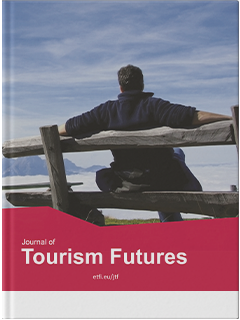Smart destination competitiveness: underscoring its impact on economic growth
IF 5.8
Q1 HOSPITALITY, LEISURE, SPORT & TOURISM
引用次数: 0
Abstract
PurposeThe current study is designed to investigate the factors that foster the framing of destination competitiveness and establish the factors that drive the contribution of tourism innovations to economic growth in smart tourism destinations.Design/methodology/approachA four-year panel data were extracted from the World Economic Forum's travel and tourism competitiveness index and data were analysed using Poisson Pseudo Maximum Likelihood regression model.FindingsThe findings demonstrate that both the enabling environment and airport infrastructure significantly affect tourism's impact on the economy of the selected smart European tourism destinations. Conversely, human resources and general infrastructure display a negative correlation with tourism's contribution to the economy. However, no data in the sample support the idea that tourism policies, government prioritization or readiness of tourism information and communication technologies impact tourism's contribution to the economy. Additionally, the marginal effects indicate that improving the enabling environment and airport infrastructure can generate additional benefits for the economy through tourism.Originality/valueThe uniqueness of this study is the integration of smart tourism destinations with the measure of destination competitiveness to provide an empirical bridge that links tourism competitiveness to economic growth.智能目的地竞争力:强调其对经济增长的影响
本研究旨在探讨促进目的地竞争力框架的因素,并确定推动旅游创新对智能旅游目的地经济增长贡献的因素。设计/方法/方法从世界经济论坛的旅游和旅游竞争力指数中提取四年的面板数据,并使用泊松伪最大似然回归模型对数据进行分析。研究结果表明,有利的环境和机场基础设施对选定的智能欧洲旅游目的地的旅游业对经济的影响都有显著影响。相反,人力资源和一般基础设施与旅游业对经济的贡献呈负相关。然而,样本中没有数据支持旅游政策、政府对旅游信息和通信技术的优先级或准备程度影响旅游业对经济的贡献的观点。此外,边际效应表明,改善有利环境和机场基础设施可以通过旅游业为经济带来额外效益。独创性/价值本研究的独特之处在于将智慧旅游目的地与目的地竞争力指标相结合,为旅游竞争力与经济增长之间的联系提供了实证桥梁。
本文章由计算机程序翻译,如有差异,请以英文原文为准。
求助全文
约1分钟内获得全文
求助全文
来源期刊

Journal of Tourism Futures
HOSPITALITY, LEISURE, SPORT & TOURISM-
CiteScore
15.70
自引率
6.00%
发文量
64
审稿时长
34 weeks
期刊介绍:
 求助内容:
求助内容: 应助结果提醒方式:
应助结果提醒方式:


